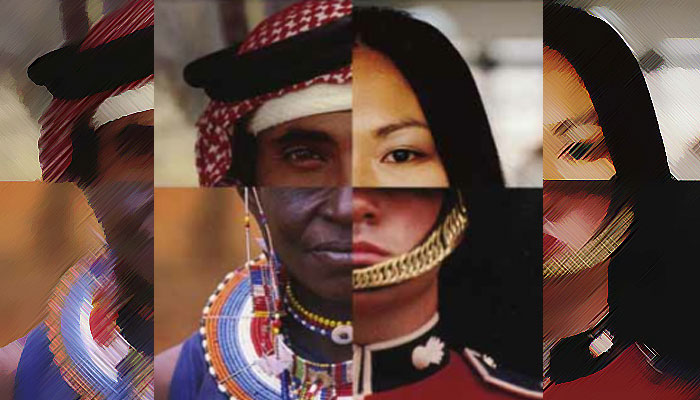TRENDING TAGS :
Cultural Hybridization and Global People
 Rashmi Kumari
Rashmi Kumari
Lucknow: In the epoch of globalization, privatization and industrialization, cultural hybridization has become an integral part of people. Easy flow of people, information, goods and services, tradition and culture has made the whole world hybrid. The major reasons behind cultural hybridization are inter-cultural communications, cross-cultural communications, migration, global investments, foreign trade, tourism, world media and international communications and technologies.
The main outlook of cultural hybridization is the continuous process of mixing or blending cultures. India is a country of different caste, creed, culture and tradition. One can easily observe that Indians are influenced by the west and Indian culture is hybridized. Today clothing pattern, language and food are the prominent areas where we could frequently notice cultural hybridization.
ALSO READ: GST effect: Gold loses luster this Diwali…!
Sanchita Tewary, Senior Academic Advisor/Trainer from Kolkata said, “It has become a global phenomenon, currently citing an example of India, our country has become an influential for many other countries, Japan celebrating Ganpati pujan to celebration of international yoga day and to Hollywood actors wearing sarees.
The perception of third world countries adoption of cultural hybridization from western countries has become obsolete”. According to Renato Rosaldo, “Hybridity can be understood as the ongoing condition of all human cultures, which contain no zones of purity because they undergo continuous processes of transculturation (two-way borrowing and lending between cultures).”
Jamshedpur city based Dr. Neha Tiwari (HoD) Department of Mass Communication and Video Production said “It is necessary to have the understanding of the natural flow of the culture which allows it to grow and expand; culture can show extraordinary strength to survive by way of adaptation”. It is woven into every corner of society.
ALSO READ: When Indira Gandhi desired jalebi, mathri for breakfast
Considered by some the father of hybrid theory, Homi Bhabha argued that colonizers and the colonized are mutually dependent in constructing a shared culture. His text The Location of Culture (1994) suggested that there is a “Third Space of Enunciation” in which cultural systems are constructed. We are living in the country where cultural interaction, meeting and mixing with people, emotion and touch are widely noticeable.
The Chinese President Xi Jinping and his wife visited India in September, 2017, he wore Nehru style coat and his wife put on Indian style dupatta, it’s a classic example of cultural hybridization. Prof. Sanjay R. Gupta, Lecturer in Cosmos Jr College, resident of Mumbai opined “everything has pros and cons and cultural hybridization is no exception.
India, also called land of culture, is now turning towards the west which may sound good to many but its actually losing its richness. On the other hand western countries are adopting Indian traditions, gayatri mantra being played in most of the cities every morning is a benefit of culture hybrid”.
ALSO READ: Urban flooding caused by plastic clogging, poor drainage
Television advertisements and programs have greatly influenced the rural and urban masses, the audio and visuals grab the attention of viewers. Their attitude, behavior, dressing style like wearing jeans, shorts and miniskirts, hairstyle, food like pizza and burger, language like French and German and lifestyle like dining table and spoon, marriage style like bachelor party and ring ceremony have changed drastically.
Music, dance, songs and movies are also creating a global village and another part of culture mix. Valentine day, friendship day and Christmas are popular celebration among teenagers and youngsters. Number of increasing inter-caste, inter-religion and ‘inter-national’ marriages are the perfect examples of cultural hybridization.
An Article by Rashmi Kumari
Writer is a research scholar of BBAU



